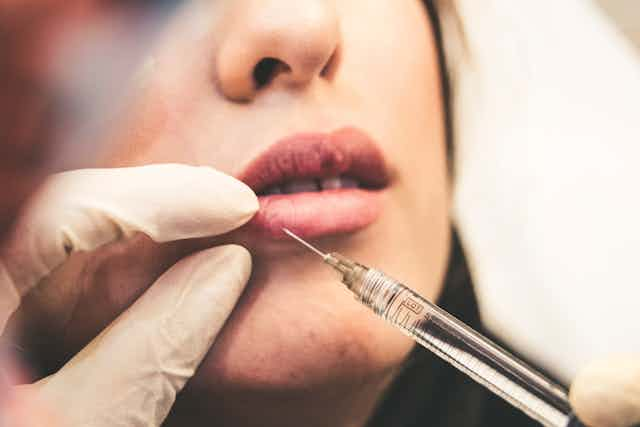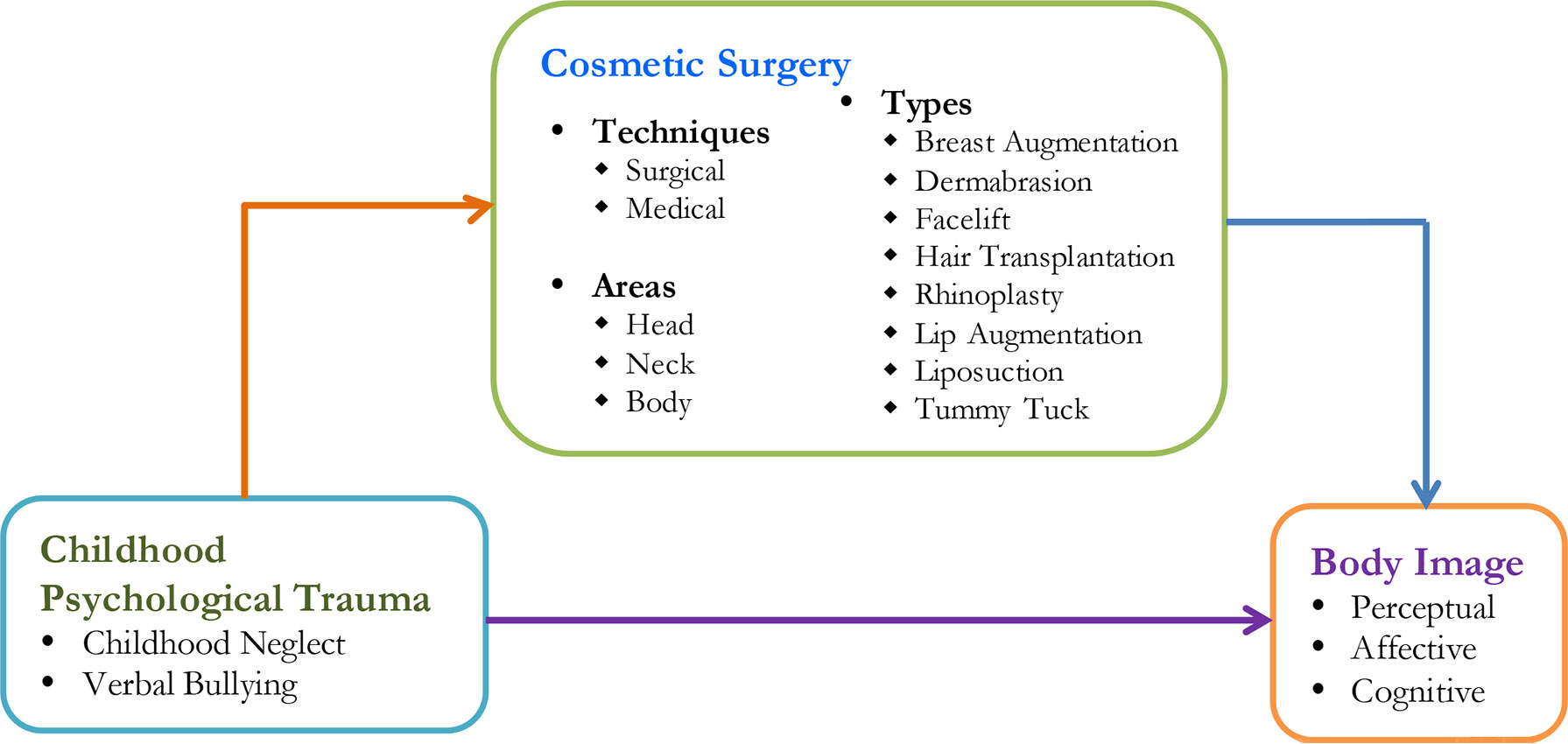Why Cosmetic Surgery Mental Health Screening Plays a Key Role for Long-Term Satisfaction
Why Cosmetic Surgery Mental Health Screening Plays a Key Role for Long-Term Satisfaction
Blog Article
An All Natural Strategy to Cosmetic Surgical Procedure: Why Psychological Checks Matter
Over the last few years, the significance of including psychological assessments into the cosmetic surgical procedure process has gotten increasing attention. An alternative approach not only resolves the physical elements of surgical treatment but additionally stresses the emotional readiness of the individual, which is essential for accomplishing preferred outcomes. Understanding motivations, recognizing prospective psychological wellness problems, and developing sensible expectations can profoundly impact fulfillment degrees. Nevertheless, the integration of these psychological checks elevates crucial concerns about the moral duties of health care carriers and the effects for client care. As we explore this subject, the intricacies become significantly apparent.
Comprehending Emotional Readiness
Before undergoing plastic surgery, it is vital for individuals to evaluate their emotional readiness, as this examination can significantly affect both the decision-making procedure and the overall results of the treatment. Psychological readiness includes a person's emotional security, dealing systems, and practical expectations pertaining to the surgery and its results.
:max_bytes(150000):strip_icc()/GettyImages-155388326-5b5dfd5f46e0fb00824b134a.jpg)
Psychological health analyses carried out by qualified experts are important in this context. They can aid determine any kind of underlying mental issues, such as body dysmorphic condition or anxiety, which might make complex the medical process. Eventually, a sincere appraisal of emotional preparedness not only sustains educated decision-making but also promotes a much more favorable surgical experience, improving the probability of accomplishing preferred end results and promoting long-lasting health in the client's life.
The Duty of Motivation
Recognizing mental readiness is carefully intertwined with the inspirations behind seeking plastic surgery. Motivation functions as an essential chauffeur that affects a person's decision-making procedure and overall fulfillment with the outcomes. Candidates might be inspired by numerous factors, consisting of individual insecurities, social stress, or a desire for self-improvement. Identifying the underlying motivations can expose insights right into the person's mental state and readiness for the procedure.
Inherent motivations, such as a genuine wish for self-enhancement and self-confidence, are usually related to more beneficial outcomes. Alternatively, external inspirations-- like seeking validation from others or attempting to fit societal perfects-- may show unsettled psychological issues that could make complex the surgical journey.
Additionally, comprehending these motivations helps healthcare professionals to evaluate the appropriateness of the procedure and the possibility of attaining wanted outcomes. It is vital for professionals to take part in open discussions with clients, allowing them to articulate their factors for seeking surgical treatment. By checking out motivations completely, professionals can much better guarantee that people are prepared not just for the physical adjustments yet likewise for the emotional and psychological implications that accompany plastic surgery.
Typical Mental Worries
Many emotional worries can emerge in people thinking about plastic surgery, substantially affecting their general experience and contentment with the procedure. One primary concern is body dysmorphic disorder (BDD), identified by an obsessive focus on perceived problems in look. This problem can lead individuals to go after multiple surgical treatments in search of an unattainable suitable, often causing disappointment and emotional distress.
Additionally, anxiousness and depressive signs might appear in prospects for plastic surgery, originating from pre-existing mental health problems or the pressures associated with social criteria of elegance. These individuals may go now harbor unrealistic assumptions concerning the results of the surgery, thinking it will certainly deal with deeper emotional or emotional problems.
Self-esteem is another essential factor, as numerous candidates link their self-worth to physical appearance. A lack of self-acceptance can cause spontaneous decisions concerning surgery, additionally making complex recovery and complete satisfaction degrees. The social implications of cosmetic surgical procedure-- such as judgment from peers or transformed partnerships-- can produce feelings of seclusion or remorse post-operation. Attending to these psychological worries is crucial to make certain people are making educated, healthy and balanced choices regarding their cosmetic surgical treatment trip.
Advantages of Psychological Examinations
A thorough mental analysis can supply considerable advantages for individuals contemplating cosmetic surgery. Primarily, it assists to determine underlying psychological concerns that may affect both the choice to undergo surgery and the awaited end results. By analyzing these factors, doctor can make certain that prospects have reasonable expectations and a healthy and balanced mindset, which are essential for contentment with the results.
Additionally, mental examinations can offer as a preventative measure against prospective post-operative issues. Individuals with unresolved psychological or mental issues might have problem with body picture disruptions or clinical depression after surgical procedure - non-invasive surgery psychological assessment. By dealing with these issues in advance, professionals can supply customized assistance and sources, advertising a much more favorable healing experience
In addition, emotional assessments promote notified decision-making. They encourage individuals to assess their motivations for looking for cosmetic procedures, enabling much deeper self-awareness and consideration of different options. This process can lead to enhanced patient-provider interaction, promoting a collaborative method to plastic surgery that focuses on emotional and mental health together with physical transformations.
Integrating Checks Into Procedures

Moreover, integrating mental check out the medical procedure need to also include continuous assistance. Post-operative follow-ups should address both physical healing and mental adjustment. Offering patients with access to mental health experts can promote dealing strategies and sensible self-image support, enhancing their overall medical experience.

Conclusion
To conclude, the combination of emotional assessments right into the plastic surgery procedure is crucial for promoting patient wellness and boosting medical outcomes. By analyzing mental preparedness, comprehending motivations, and resolving typical mental health problems, doctor can assist in educated decision-making and foster much healthier coping approaches. This all natural technique not only supports individuals in achieving sensible assumptions but likewise alleviates the threats related to underlying psychological problems, ultimately resulting in boosted satisfaction and improved post-operative experiences.
Understanding mental readiness is carefully intertwined with the motivations behind seeking cosmetic surgical procedure. By discovering motivations thoroughly, specialists can much better make certain that individuals are prepared not only for the physical modifications yet also for the psychological and emotional ramifications that accompany cosmetic surgical treatment.
Many psychological issues can emerge in people thinking about cosmetic surgical treatment, significantly affecting their overall experience and complete satisfaction with the procedure. Attending to these mental worries is necessary to make sure people are making notified, healthy decisions concerning their cosmetic surgical treatment journey.
A comprehensive psychological analysis can supply considerable benefits for people considering cosmetic surgery. cosmetic surgery mental health screening.
Report this page